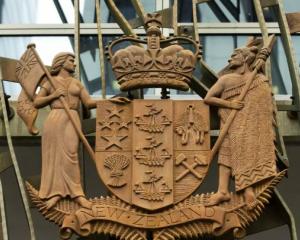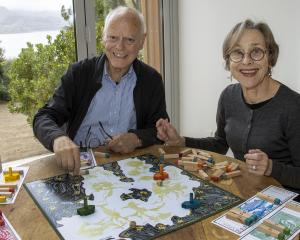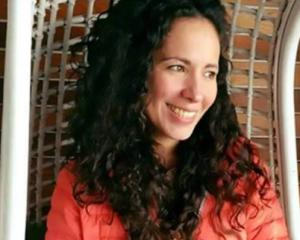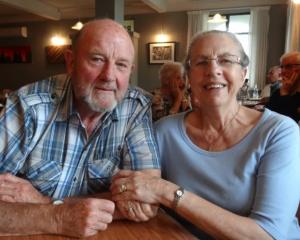There are 89 new cases of Covid-19 to report in New Zealand this afternoon - and Christchurch will stay at alert level 2, despite two new community cases confirmed.
The Government says stays in managed isolation and quarantine (MIQ) will be halved from 14 to seven days, followed by isolation at home for three days.
Authorities have been working to determine the risk to the South Island's biggest city. But Covid-19 Response Minister Chris Hipkins told media this afternoon there was no need for Christchurch to move up an alert level, as the cases have had no major exposure events and all close contacts have been isolated.
He said earlier today the two cases were not frequent users of the Covid Tracer App, had been quite unwell and potentially out and about in the city while infectious for several days. They were not vaccinated.
However, the Minister said vaccination rates were above 90% or above for first doses and above 70% for second doses in the Bishopdale area, where one of the cases lives. In the wider Canterbury region, the vaccination numbers are 89% for first doses and 69% having had second doses.
"These cases do remind us that no one in New Zealand can afford to be complacent about Covid-19 and the Delta variant, in particular. The best protection for ourselves and our wider communities is vaccination."
Hipkins believed that alert level 2 settings would continue to keep people safe by limiting gatherings, restricting worksites and use of masks and scanning.
"My thanks to the people of Christchurch and the wider South Island who are continuing to follow the rules. That will help us to stop any transmission of the virus working alongside vaccination."
The Ministry of Health said the Christchurch cases are from the same household. One travelled from Auckland a week ago with a childcare exemption after having tested negative for the virus. Travel to provide childcare is permitted under alert level 3 if no other appropriate person is available locally.
The Ministry said the person who travelled to Auckland had a negative test before heading north and a second negative test before returning to Christchurch on Friday, October 15. The case was not considered infectious when they travelled back to Christchurch.
The other case works as a truck driver and the company the person works for is assisting with tracking their whereabouts during the four days the person was working during their infectious period. Initial information indicates the person was completing deliveries around the Christchurch area, with some trips to north Canterbury.
Both people became unwell last week, were tested on October 26 and both returned positive test results last night. Currently, there are three households where nine close contacts have been identified.
Both cases are isolating safety at home, with public health oversight, and with plans under way to transfer them to a local quarantine facility.
There are two community testing centres in Christchurch, which had scaled up to meet the expected demand. Christchurch wastewater testing had not picked up Covid-19 - there would be wider testing now done.
89 new community cases
Director-General of Health Dr Ashley Bloomfield said there are 89 new cases of Covid-19 to report in New Zealand today - 83 in Auckland (the centre of the current Delta outbreak), four in Waikato and two in Christchurch.
One further case in Auckland is an MIQ worker and is being investigated to determine whether it is a community or border-related case.
As at 10am, 39 of today’s cases have been linked - including 26 household contacts - and 50 remain unlinked, with investigations continuing to help determine their connection to the outbreak.
Thirty-seven people are in hospitals and five are in ICU.
MIQ stays halved
The Government said stays in managed isolation and quarantine will be halved from 14 to seven days, followed by isolation at home for three days.
Hipkins said the MIQ system had worked very effectively, but as vaccination rates lifted internationally only two to three cases per 1000 arrivals were being picked up at the border and the risk profile had also changed because Covid-19 was in the community.
He said the Government was aware of pressure rebuilding at the border and the need for room in MIQ for community cases.
Under the new regime, which will begin from November 14, arrivals must be fully vaccinated and will be tested on days 0, 3 and 6 and undertake a rapid antigen test before leaving MIQ, before a day-9 test at home.
Hipkins believed this would free up about 1500 rooms a month in MIQ. Some of this will be taken up by community cases but some will go into the booking system for travellers from overseas.
The second step will reopen the border to low-risk travellers from Samoa, Tonga and Tokelau without isolation. This one-way quarantine-free travel will begin from November 8.
Hipkins said stopping Covid-19 at the border had been a priority and New Zealand's ability to do so had led to levels of freedom over the past year and a half which were the envy of many other nations.
"As a country we owe a massive vote of thanks to our frontline MIQ and border workers," he said.
Entering the next phase, as vaccination rates increase internationally, the number of cases picked up from overseas had continued to decline. He said the overall risk profile has changed and the government had been considering how to rebalance the MIQ system.
Hipkins said it was too early to introduce home isolation immediately because Covid-19 was still mainly contained in Auckland. It would risk other cases coming up elsewhere if they were not isolating in Auckland.
He expected home isolation for fully vaccinated people by the end of the first quarter in 2022.
On those coming from overseas, Hipkins said the first priority was New Zealanders and those with visas waiting to return before moving to consider other groups such as international students.
Tourists were more of a challenge because they did not necessarily have somewhere to isolate, he said.
- ODT Online, NZ Herald and RNZ













